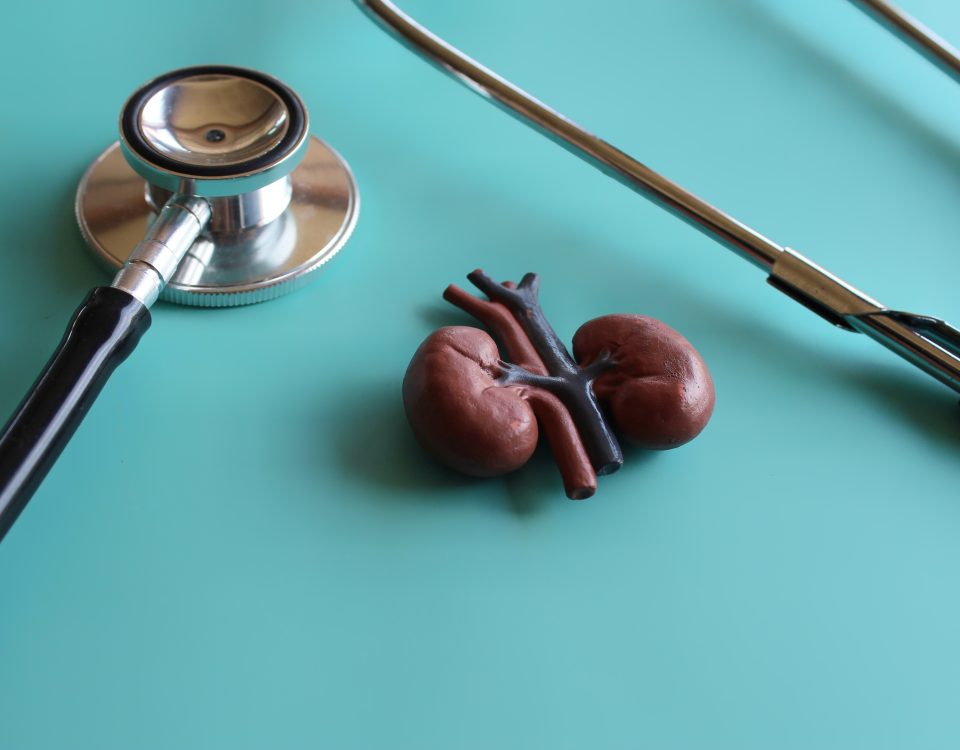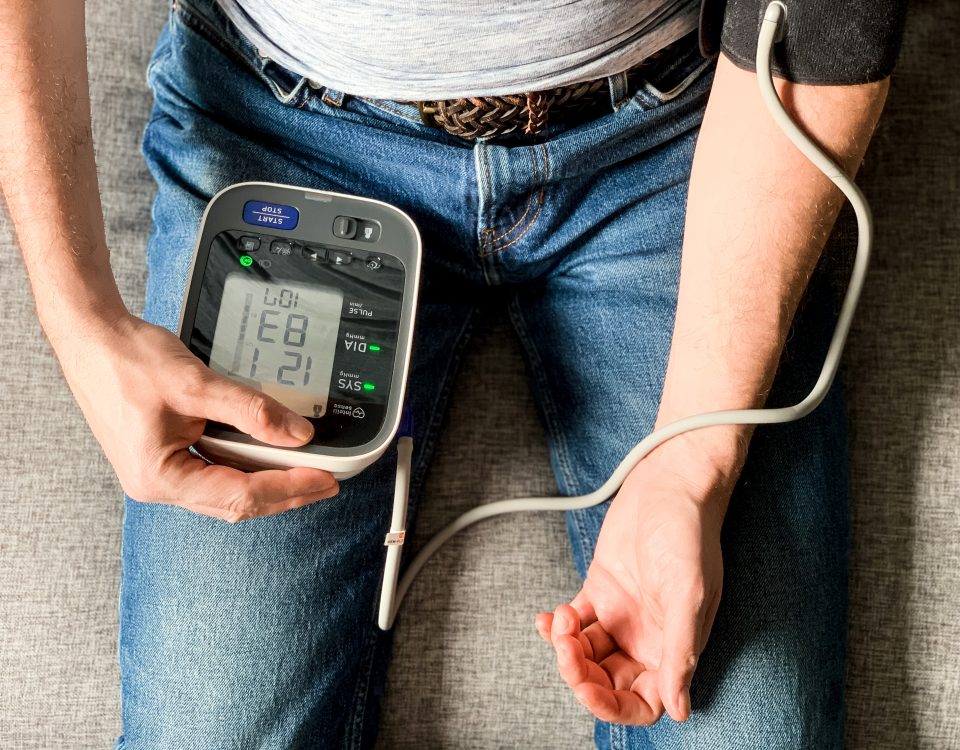Dementia Treatment and Prevention
by: Dr. Clarice Chong, Family Physician, Regis Medical
Dementia causes the body’s cognitive function to deteriorate, affecting memory, comprehension, language, judgement, and more. Over 55 million people worldwide live with dementia and the number is expected to rise, with nearly 10 million new cases every year. The impact of dementia is severe, with physical, psychological, social and economic impacts, not only for the patient but also their family.
Jump to
Dementia in Singapore
It is estimated that 1 in 10 Singaporeans aged 60 and above suffers from dementia. In 2011, the total number of Singaporeans aged 60 years and above was estimated to be 28,000. A national survey on dementia in 2019 found that 3 in 4 Singaporeans with dementia felt ashamed and rejected. The stigma surrounding dementia results in a lack of support for dementia patients as they struggle to retain their quality of life. As the number of dementia patients in Singapore continues to rise, dementia is likely to become a greater problem for Singapore.
Screen for Dementia with Regis Medical Health Screening
Comprehensive, fast result, personalised review session
What is Dementia?
Dementia is an umbrella term for an impairment in your ability to remember, think, or make decisions. While dementia tends to affect older adults, it is not a part of normal aging. In fact, many adults will live their entire lives without ever developing dementia. Dementia that occurs in adults below the age of 65 is known as early on-set dementia. Dementia can be caused by various diseases or injuries that primarily or secondarily affect the brain. The most common type of dementia is Alzheimer’s disease, contributing to 60% to 70% of all dementia cases. Dementia is a serious condition and is the seventh leading cause of death among older people globally. In addition, even if it does not lead to death, dementia is one of the major causes of disability and dependency, creating serious problems for both the patient and their families. Research with objective of finding cures for common types of dementia are ongoing, but there is no cure for dementia right now.
Types of Dementia
There are many different types of dementia, but the most common types of dementia include:
Alzheimer’s Disease
Alzheimer’s disease is the most common type of dementia. It is a progressive disease where dementia symptoms gradually worsen. It tends to affect people above 65 but can also develop in people under 65. This is referred to as early-onset Alzheimer’s. Alzheimer's disease is the result of specific changes in the brain. The most noticeable symptom is difficulty remembering recent events. As the disease progresses, the patient may have trouble remembering more distant memories and communicating with others, as well as personality changes.
Vascular Dementia
Vascular dementia is another common type of dementia that is caused by brain damage. This brain damage is the result of impaired blood flow to your brain due to conditions such as strokes or other cardiovascular diseases.
Lewy Body Dementia
Patients with Lewy body dementia (LBD) experience movement or balance problems in addition to the common symptoms of dementia. LBD is the result of abnormal deposits of a protein called alpha-synuclein in the brain. These deposits cause changes in chemicals within the brain, which results in problems with cognitive functions.
Fronto-temporal Dementia
Fronto-temporal dementia (FTD) is a type of dementia caused by damage to neurons in the frontal and temporal lobes of the brain. Patients with this type of dementia will experience symptoms such as personality or behavioural changes, in addition to common symptoms of dementia. This type of dementia may sometimes be misdiagnosed as a psychiatric problem due to these symptoms.

Common Symptoms of Dementia
While there are many different types of dementia, they tend to share common symptoms. The symptoms of dementia can differ based on the progression of the disease. This can be broken down into three stages.
Early-stage Dementia Symptoms
Symptoms of dementia in the early stages tend to be less noticeable as the patient tends to still retain the ability to function independently. These include:
- Forgetfulness
- Having trouble when it comes to remembering names
- Misplacing items
- Difficulty performing tasks in social or work settings
Middle-stage Dementia Symptoms
Symptoms of dementia in the middle stages tend to be more pronounced and progressively worse, resulting in the need for a greater level of care. These include:
- Forgetting events or personal history
- Inability to recall personal information such as their own address or telephone number
- Personality and behavioural changes
- Increased tendency to wander and become lost
- Loss of control over their bladder and bowels
Late-stage Dementia Symptoms
In this stage of dementia, patients experience severe symptoms and are no longer able to respond to their environment, converse with others or even control their own movements. Extensive care will be required. Symptoms include:
- Losing the ability to control or even carry out physical movements such as walking, sitting and even swallowing.
- The inability to swallow properly puts late-stage dementia patients at a higher risk of pneumonia.
- Losing awareness of their surroundings
- Difficulty communicating
Risk Factors for Dementia
Here are some risk factors for dementia:
- Age. As you grow older, your risk of developing dementia increases.
- Family history. If your parent or parent have had dementia, you may be at an increased risk of developing dementia.
- Poor cardiovascular health. Chronic health conditions such as high blood pressure, high cholesterol, and diabetes can lead to an increased risk of dementia.
- Lifestyle factors such as a poor diet, lack of physical activity, and smoking have been linked to an increased risk of developing dementia.
- Head injury. Having a prior severe head injury, especially if it had led to a concussion, will increase your risk of dementia.
- Substance abuse: Abusing substances such as drugs and alcohol regularly may increase your risk of dementia.
- Education level. Studies have suggested that people who have received less education may have an increased risk of dementia.
- Knowing the risk factors of dementia can allow you to make certain changes to your lifestyle habits if applicable, so that you can lower your risk of developing dementia in the future.
Complications of Dementia
Dementia is a serious condition that can result in various complications that can affect one's quality of life. These include:
- Difficulty carrying out daily activities. As dementia progresses and symptoms become increasingly severe, the patient may be unable to carry out daily activities such as bathing, dressing and eating.
- Falls. Dementia can affect one’s ability to balance and coordinate their body movements. This will increase their risk of falls.
- Malnutrition. Dementia can hinder one’s ability to feed themselves, reducing appetite and potentially leading to malnutrition.
- Infections. Dementia can increase one’s risk of infections, due to impairments to their immune system.
- Change in behaviour. Dementia can cause the patient’s mood and behaviour to change, potentially leading to psychological problems such as anxiety and depression.
- Loss of independence. As dementia symptoms worsen, the patient may no longer be able to live independently. They will require assistance for daily activities and even require full-time care. This can put additional stress on their family members or caregivers.
Diagnosing Dementia
Due to the many different types of dementia that exist, it is difficult to diagnose the exact type of dementia a patient may have. A healthcare provider will have to conduct a thorough evaluation of you or your family member’s condition. In addition, several tests may be required to pinpoint the exact problem. This may include:
- Medical history. Understanding your medical history is important when it comes to diagnosing dementia. You will be asked about your symptoms, whether you are currently on medication as well as any pre-existing health conditions you may have.
- Physical examination. A physical examination will be conducted to check for physical signs of dementia.
- Cognitive and neuropsychological tests. Your healthcare provider will conduct various tests to evaluate your cognitive abilities.
- Brain scans. A computerised tomography (CT) or magnetic resonance imaging (MRI) test may be used to scan for evidence of stroke or bleeding or tumour or hydrocephalus (the build-up of fluids in the cavities of the brain. The shrinkage of the brain can also be detected through these tests. A positron emission tomography (PET) scan helps to show brain activity and the presence of amyloid or tau protein within the brain, which would signal the development of Alzheimer's disease.
- Cerebrospinal fluid testing. These fluids are drawn from your spine to test for evidence of dementia.
Due to the complexity involved in diagnosing dementia, you will need to go through multiple assessments and tests before you can be diagnosed with a specific type of dementia. Multiple repeated visits to your GP may be necessary so that your doctor will be able to make an accurate diagnosis after multiple rounds of observation over a prolonged period of time.
Preventing Dementia
Dementia may be unavoidable in some cases, but there are preventive steps that you can take to lower your risk of developing dementia, especially when it comes to making changes to your lifestyle. These include:
- Carrying out regular mental activities to ensure that your mind stays active. Ideally, these activities should challenge the brain. These can range from reading, solving puzzles or playing games that require memorisation.
- Staying physically active and socially active. Physical activity can help to prevent the development of chronic conditions such as diabetes, high cholesterol and high blood pressure which are risk factors for dementia. It is recommended that you get at least 150 minutes of physical exercise a week. Regular social interaction can help to delay the onset of dementia.
- Quit smoking. Studies have suggested a link between smoking and dementia. By quitting smoking, you can effectively lower risk of developing dementia and other health conditions.
- Seek treatment for chronic conditions. Chronic conditions such as diabetes, high cholesterol and high blood pressure can lead to strokes if not treated and managed properly. Strokes can lead to brain damage which can then result in the development of dementia.
- Head injuries. Head injuries, especially ones that result in concussions, are risk factors for dementia. Protecting your head with proper protective gear when engaging in high-risk activities or sports.
- Improve your sleep. Sleep disorders have been linked to increased risks of dementia. These include insomnia and obstructed sleep apnoea. If you have a sleeping disorder, consult a doctor to see how you can treat it.
Treatment Methods for Dementia
While there is no cure for dementia now, there are treatment methods that can be used to slow down the progress of the disease and manage symptoms.
Dementia Medication
Acetylcholinesterase inhibitors. These help to prevent or reduce the breakdown of acetylcholine, a substance in the brain that facilitates communication between nerve cells. This helps the patient to retain cognitive functions such as memory and judgement. Examples of acetylcholinesterase inhibitors include donepezil, rivastigmine and galantamine. Side effects of these type of medication include nausea, vomiting and a loss of appetite.
Memantine. This type of medication is usually used to treat moderate to severe dementia but is also suitable for patients who are unable to take acetylcholinesterase inhibitors. Common side effects of memantine include light-headedness, drowsiness, constipation and headaches.
Other medications. Medications such as antipsychotics, antidepressants, mood stabilisers and sedatives may be required if the patient displays behavioural changes that are difficult to deal with. Behavioural changes may include aggression, anxiety, delusions and hallucinations.
Non-pharmacological treatments
Regular structured routine. Having a structured daily routine can be helpful for dementia patients. Activities can include simple physical exercises, or activities that stimulate their cognitive functions such as puzzle-solving. In addition, having a structured daily routine will prevent the patient from taking too many naps in the day.
Your primary healthcare provider can help with the management and treatment of mild dementia. However, once the disease progresses, patients with moderate or severe dementia will need to be referred to a specialist.
Screen for Dementia with Regis Medical Health Screening
Comprehensive, fast result, personalised review session
Disclaimer:
The information on this website, including but not limited to, text, graphics, images, videos and all other materials contained on this website is for informational purposes only. None of the material is meant to replace a certified and registered Doctor's professional medical advice, diagnosis, and treatment.
No warranties or representations are given in respect of the medical information. Regis Medical, Regis Medical’s staff, and the website's operator will not be held liable if a user suffers any injury or loss after relying upon the medical information on this website.
Any devices used for technology-enhanced therapies are intended for use only for general well-being purposes or to encourage or maintain a healthy lifestyle and is not intended to be used for any medical purpose (such as the detection. diagnosis, monitoring, management or treatment of any medical condition or disease). Any health-related information provided by this device or software should not be treated as medical advice. Please consult a certified and registered Doctor for any medical advice required.
“3 IN 4 PERSONS WITH DEMENTIA FEEL REJECTION AND LONELINESS, NATIONAL SURVEY ON DEMENTIA FINDS.” 3 In 4 Persons with Dementia Feel Rejection and Loneliness, National Survey on Dementia Finds, Dementia Singapore, 6 May 2019, https://dementia.org.sg/2019/05/06/smu-ada-survey-2019/.
Dementia, World Health Organization, 20 Sept. 2022, https://www.who.int/news-room/fact-sheets/detail/dementia#:~:text=Rates%20of%20dementia,and%20139%20million%20in%202050.
“Dementia.” Dementia - Conditions & Treatments | SingHealth, SingHealth, 2021, https://www.singhealth.com.sg/patient-care/conditions-treatments/dementia.
“Dementia.” Dementia - Diagnosis and Treatment, Mayo Clinic, 12 Oct. 2022, https://www.mayoclinic.org/diseases-conditions/dementia/diagnosis-treatment/drc-20352019.
“Dementia.” Dementia - Symptoms and Causes, Mayo Clinic, 12 Oct. 2022, https://www.mayoclinic.org/diseases-conditions/dementia/symptoms-causes/syc-20352013.
Dersakissian, Carol. “Sleep Problems and Dementia.” The Link between Dementia & Sleeping Problems, WebMD, 7 Mar. 2022, https://www.webmd.com/sleep-disorders/sleep-dementia#:~:text=When%20you%20don't%20get%20enough%20sleep%2C%20parts%20of%20your,like%20depression%20or%20drug%20use.
Li, Song et al. “Traditional Chinese medicine for dementia.” Alzheimer's & dementia : the journal of the Alzheimer's Association vol. 17,6 (2021): 1066-1071. doi:10.1002/alz.12258
“Symptoms of Dementia.” Symptoms of Dementia - NHS, NHS Choices, 12 June 2020, https://www.nhs.uk/conditions/dementia/symptoms/.
Yan, Han et al. “Treating senile dementia with traditional Chinese medicine.” Clinical interventions in aging vol. 2,2 (2007): 201-8.
Ye, Yang et al. “Acupuncture for patients with vascular dementia: a systematic review protocol.” BMJ open vol. 7,12 e019066. 6 Dec. 2017, doi:10.1136/bmjopen-2017-019066


